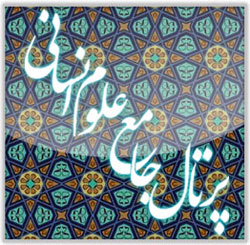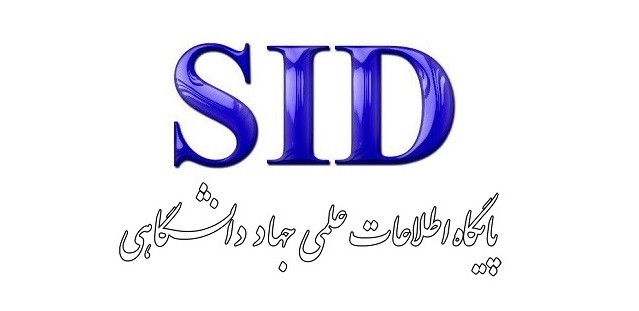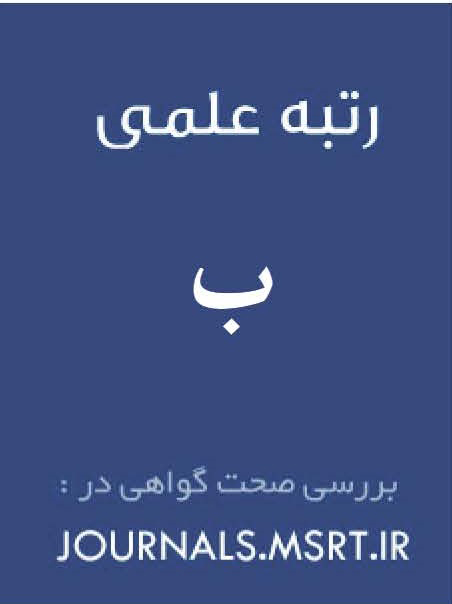Socio-Historical Criticism of the Stories “Bileh Dig, Bileh Choghondar” and “Namake Gandideh” Based on Claude Duchet’s Theory
Keywords:
Socio-Historical Criticism, Claude Duchet, Seyyed Mohammad Ali Jamalzadeh, Bileh Dig, Bileh Choghondar, Namak GandidehAbstract
The language of fiction has been studied as one of the most influential tools for transmitting social, historical, and cultural concepts in literature. Fictional literature, especially in the form of satire, provides a powerful platform for expressing social criticism, and many writers in the modern history of Iran have utilized it. In this regard, Claude Duchet’s socio-historical theory, which places special emphasis on textual narration and the social signs embedded in the text, has been chosen as the theoretical framework of this study. According to this theory, literary works are reflections of the social, class, political, and cultural structures of society, and analyzing them can reveal the hidden layers of historical and social realities. In this study, using a library method and textual content analysis, two stories by Mohammad Ali Jamalzadeh—Bileh Dig, Bileh Choghondar and Namake Gandideh—have been examined. Jamalzadeh is one of the first authors who, with a critical and satirical perspective, depicted structures of power, corruption, discrimination, and social inequality in his stories. The findings of the study show that these two works clearly reflect the social, political, and class conditions of Iran in their time. Through Duchet’s theory, it is possible to analyze how social structures contribute to the emergence of crises, administrative corruption, and cultural disorders. This research also demonstrates how fictional literature can function as a tool for raising awareness and social criticism, creating a link between the actual structures of society and their representation in literary texts.
Downloads
References
1. Mohammadi Fasharaki M, Ghafouri A. A sociological reflection on the last work of fiction by Jalal Al-Ahmad with a view to Lucien Goldman's theory. Research Journal of Fiction Literature. 2024;3(1):215-40.
2. Makaryk IR. Encyclopedia of Contemporary Literary Theory. Tehran: Agah; 2011.
3. Duchét C. Histoire et société: Essais de critique historique et sociologique. Paris: Editions du Seuil; 1985. 47 p.
4. Duchet C. Sociocritique. Paris: Nathan; 1979.
5. Zima PV. An Introduction to the Sociology of Literature: The Sociology of the Novel from the Perspectives of Ian Watt, Lukács, Macherey, Goldmann, and Bakhtin. Tehran: Naghsh-e Jahanmehr; 2000.
6. Duchet C. Une écriture de la socialité. Paris: Seuil; 1973.
7. Duchet C, Tournier I. Sociocritique. Dictionnaire universel des littératures. Paris: PUF; 1994. p. 35-72.
8. Khademian T. An Introduction to the Sociology of Cultural Views and Theories. Tehran: Jahan-e Ketab; 2023.
9. Jamalzadeh SM. There was one, there was not one. Tehran: Sokhan; 2000.
10. Weber M. Religion, Power, and Society. Tehran: Hermes; 2010.
11. Mirabbasi M. Characteristics of Meritocracy. Tadbir Journal. 1998:169-82.
12. Shahsavari Fard S. Meritocracy in the society of iran(In a Cartesian doubt). Recent Developments in public law. 2022;1(1):22-40.
13. Hejazi N, Meshgini M. Comparative study on The Little Prince and Animals Farm according to Claude Duchet's sociocritical model. Research in Contemporary World Literature. 2021;26(1):110-42.
14. Yousefian F, Hasan N. A Sociological Analysis of Nader Ebrahimi's Book Ibn-e Mashgaleh. Journal of Contemporary World Literature Research. 2021(84):593-620.
15. Anvari H. Farhang-e Bozorg-e Sokhan (The Great Dictionary of Sokhan). Tehran: Sokhan; 2002.
16. Islami Nodushan MA. Reflection on Hafez. Tehran: Yazdan; 2003.
17. Valipour Hafshejani S. Lucien Goldmann and Genetic Structuralism. Humanities Journal (Semnan). 2008;7(25):129-43.
18. Jamalzadeh SM. old and new. Tehran: Sokhan; 2001.
19. Sam Deliri I. Meritocracy Development in the Economic Management Structure. Iranian Economics Journal. 2005(81):82-9.
Downloads
Published
Submitted
Revised
Accepted
Issue
Section
License
Copyright (c) 2025 سمیه علیاکبرزاده (نویسنده); ماندانا علیمی; علی فلاح (نویسنده)

This work is licensed under a Creative Commons Attribution-NonCommercial 4.0 International License.









